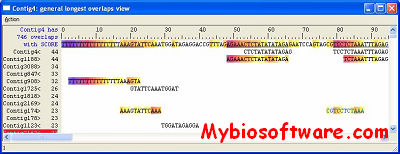Picky 2.2
:: DESCRIPTION
Picky is an oligo design program that alleviates long and monotonous calculations by identifying probes that are very unique and specific to sequence regions. These calculations are based on parameters inputted by the user including optimal probe length, ideal percentage of guanine and cytosine content, salt concentration and the maximum length to which a target sequence matches any non-target sequence.
PICKY allows the rapid and efficient determination of gene-specific oligos based on given gene sets, and can be used for large, complex genomes such as human, mouse, or maize. PICKY can also be used to analyze existing microarray probes and evaluate their design quality. Because PICKY uses rigorous whole genome-based thermodynamic screening to identify potential hydrogen binding sites of each probe, it can also be utilized to design short interference RNA (siRNA) for gene knockout applications and to discover possible targets of regulatory short RNAs (e.g., microRNAs or sRNAs). Picky has exceptional computational capability and is also user friendly.
::DEVELOPER
Complex Computation Laboratory
:: SCREENSHOTS
:: REQUIREMENTS
- Windows / Linux / Mac OsX
:: DOWNLOAD
:: MORE INFORMATION
Register for the free 64-bit Picky license.
Register for the free 32-bit Picky license.
If you find Picky useful to your research, please cite the Picky papers below that are most relevant to your work. If you have no preference, we recommend you cite the newest Shared Probe Design paper.
Shared probe design and existing microarray reanalysis using PICKY.
Chou HH.
BMC Bioinformatics. 2010 Apr 20;11:196.PMID: 20406469
Direct calibration of PICKY-designed microarrays.
Chou HH, Trisiriroj A, Park S, Hsing YI, Ronald PC, Schnable PS.
BMC Bioinformatics. 2009 Oct 23;10:347.PMID: 19849862
Picky: oligo microarray design for large genomes.
Chou HH, Hsia AP, Mooney DL, Schnable PS.
Bioinformatics. 2004 Nov 22;20(17):2893-902. Epub 2004 Jun 4.PMID: 15180932


